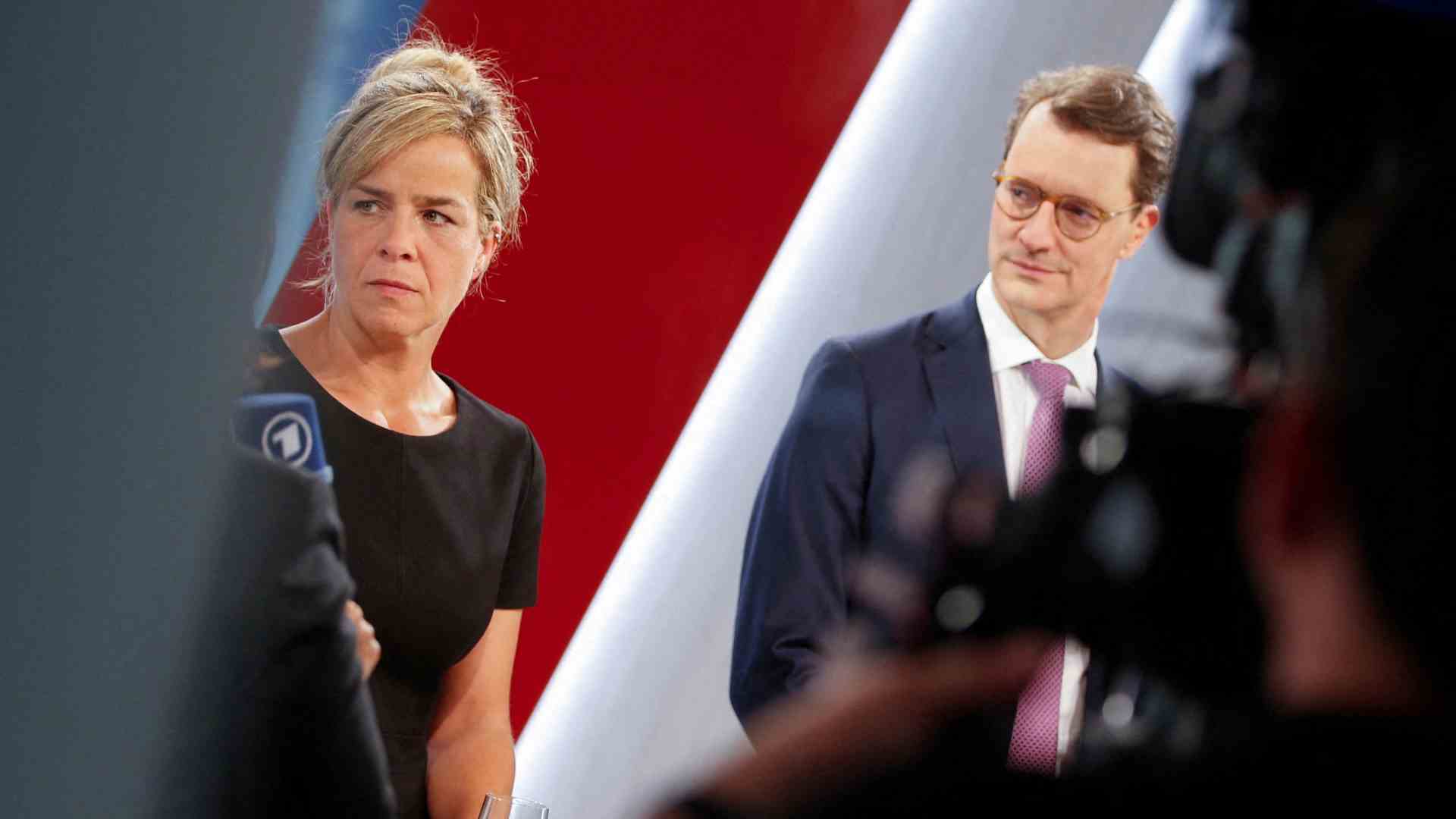Status: 17.05.2022 4:09 p.m
North Rhine-Westphalia could in future be governed by a coalition of the CDU and the Greens. But to do this, the parties must agree on common goals – and that could be difficult.
CDU, SPD, Greens and FDP – they all want to talk to each other in NRW, but in the end coalition negotiations will probably only be conducted by the two election winners: CDU and Greens. While the CDU has clearly become the strongest force in NRW, the Greens were able to almost triple their 2017 result. Nobody can get past them in NRW – apart from an improbable grand coalition.
The Greens can therefore choose with whom they want to govern in NRW. A traffic light alliance of SPD, Greens and FDP would be conceivable. But the FDP, which is still co-governing, is not ready for this in view of their massive losses. “There is definitely black and green, that’s absolutely clear,” emphasized FDP leader Joachim Stamp.
The first requirements for this have already been met, as Mona Neubaur, the Green Party’s top candidate, has already accepted the CDU’s invitation to exploratory talks. However, she also emphasized that, according to surveys, “a significant proportion of voters could also imagine a constellation other than black-green”. She would “of course” accept an invitation from the SPD.
He is counting on “good talks”, said Prime Minister Hendrik Wüst. And that also includes “getting involved with each other to a certain extent.” He named the reconciliation of climate protection and industrial jobs, education, internal security and better, clean mobility as central topics. “These are future issues that we will talk about now.”
But does that also work with the Greens? It should at least be tough coalition negotiations for the CDU. The Greens Federal Chairwoman Ricarda Lang emphasized: “In the end, one thing will decide who we govern with, namely who is willing to walk the path together with us towards a climate-neutral and just future for North Rhine-Westphalia.”
Coalition negotiations between the CDU and the Greens could become long on the following issues:
climate and energy
The CDU would like to stick to the 1000 meter distance rule when it comes to wind power. That increases acceptance, so the argument goes. This “pacification limit” should create a balance between the goal of expanding wind energy and the interests of local residents.
The Greens, on the other hand, want to abolish the blanket 1000-meter rule. Then the federal minimum distance of about 700 meters would apply. The Greens see “enormous potential lying fallow” here. Green energy expert Wibke Brems says that if the 1,000 meter rule were to be abolished, 52 percent more space would be available for wind turbines. In addition, the Greens want to use more forest areas for wind power.
In addition, the Greens would like to accelerate the expansion of photovoltaicsby setting annual minimum expansion paths for solar.
internal security
They also differ particularly widely Internal security ideas. While Interior Minister Herbert Reul (CDU) would like to increasingly equip the police in North Rhine-Westphalia with bodycams and electric shockers, the Greens are strictly against it. They reject comprehensive video surveillance without cause as well as the use of analysis software (e.g. from the manufacturer Palantir).
That too new assembly law would not have been passed with the Greens. While the CDU wanted to make the work of the police “legally safer” with it, the Greens criticized it as a “law to prevent assembly”. This means that Nazi marches would continue to be equated with climate protests and the anti-fascist black bloc, according to criticism from the Greens. In their election program it also says: “We reject the criminalization of the climate justice movement and anti-fascist demonstrations operated by the state government.”
The Greens also consider the fight against clan crime to be stigmatizing in the way it is sold by the CDU.
housing
According to the will of the CDU, public housing subsidies should be strengthened. She would like to make more money available for affordable housing. The Greens, on the other hand, are going a few steps further: In tight housing markets, they want to limit the conversion of rental apartments into owner-occupied apartments. Demanded in the WDR election arena Green leader Mona Neubaur clearly a “revised” rental price brake, while Hendrik Wüst dodged the question. He wants to make the rental price brake “superfluous through affordable housing”.
mobility and traffic
For the Greens has the expansion of public transport sas well as pedestrian and bicycle traffic “absolute priority”. Instead of building “outdated” motorways and bypasses, the expansion of rail and cycle paths should be massively promoted. For the CDU, on the other hand, this is not really an option in view of the voters in rural areas.

